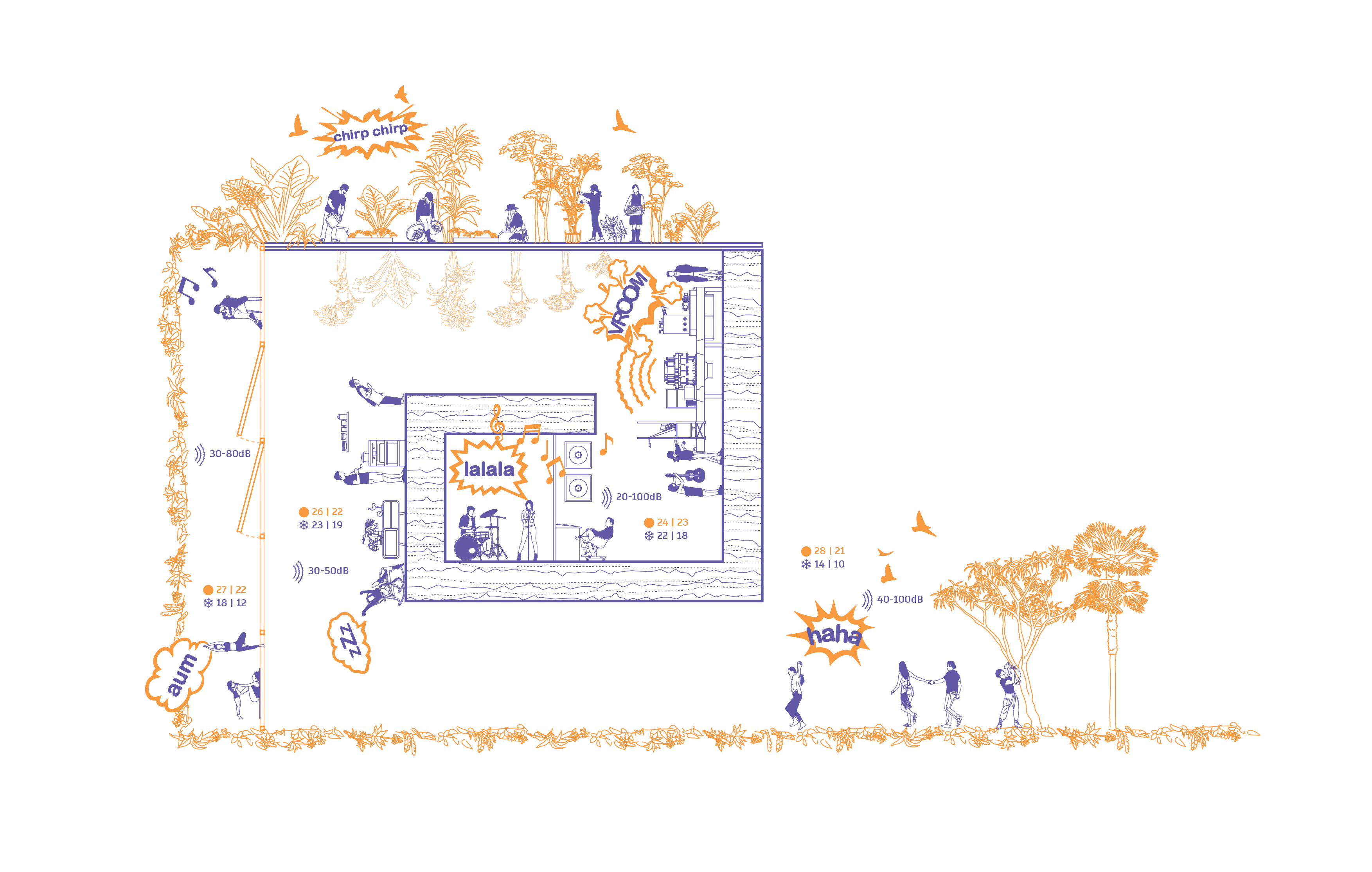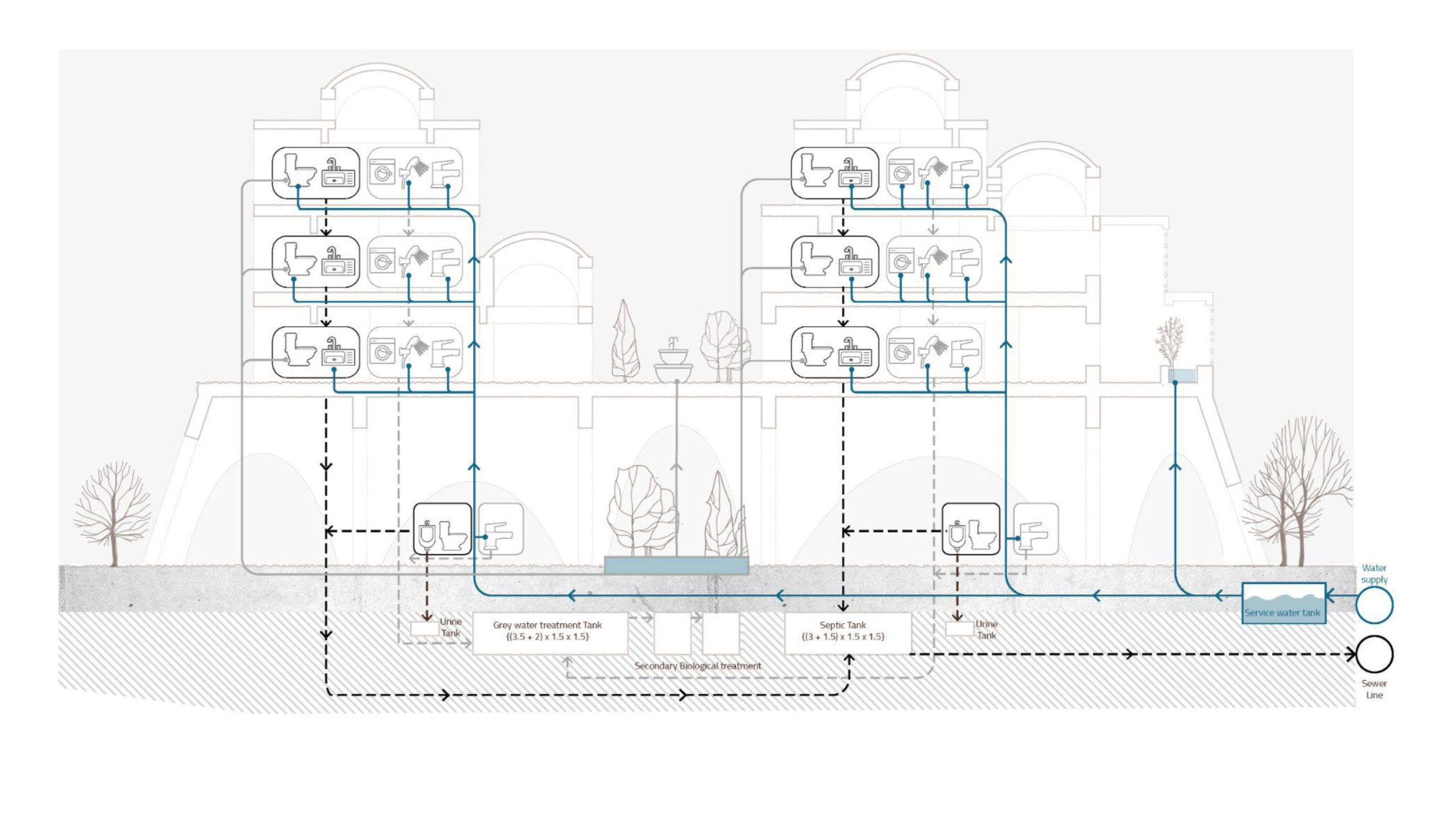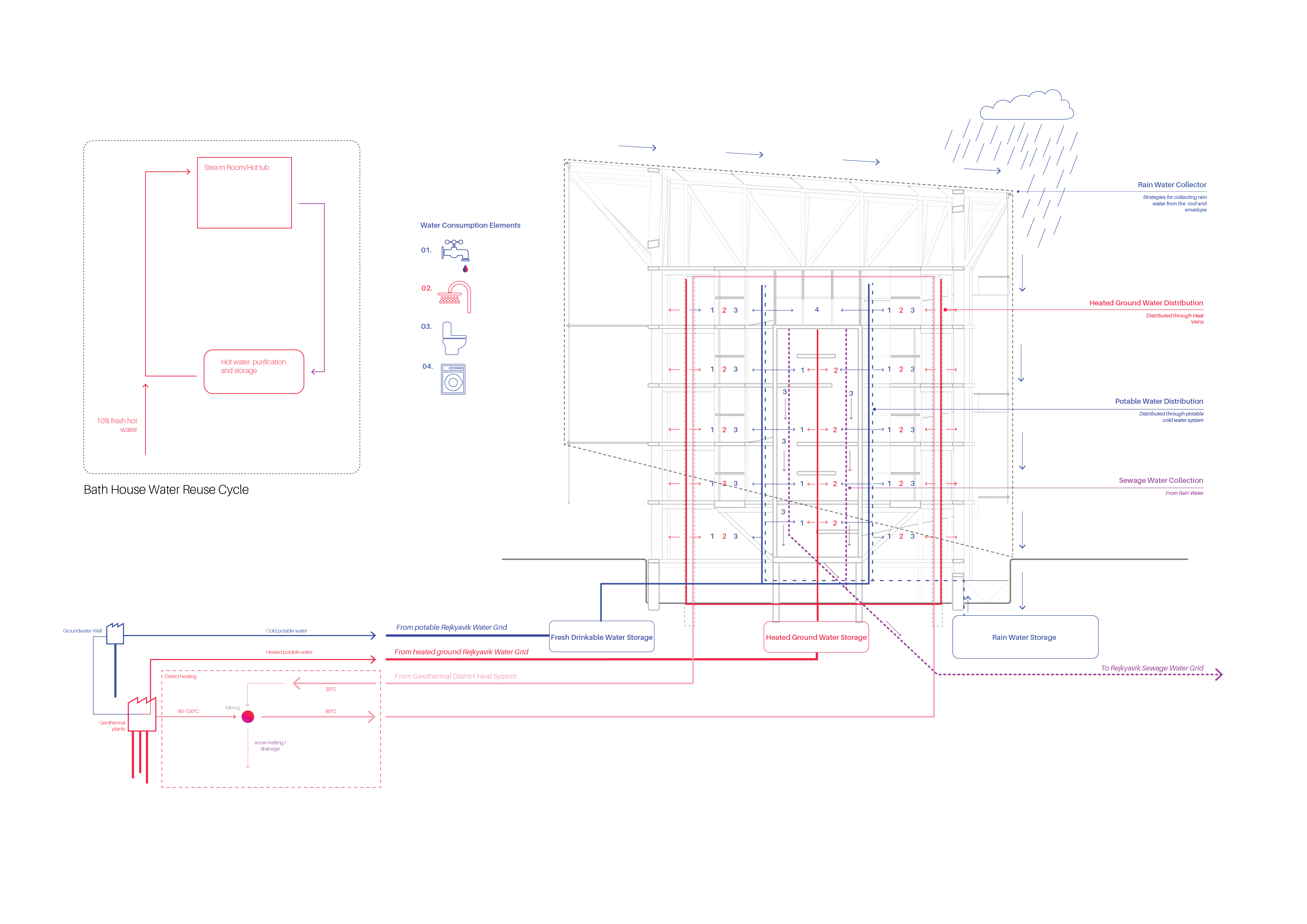The aim of the course is to raise awareness of the possible impact of good water management strategies, implemented during the initial phase of any architectonic project, on the ecological footprint and the resilience of the corresponding infrastructure.
Students will learn about the water saving potential of innovative water management concepts and technologies comparing to conventional project design.
During the course special attention will be given on rainwater harvesting and management, treatment and reclaiming of wastewater for different purposes and the nexus of water and energy.
Following the introduction session, each group will work to select the optimum water management strategy for their project, taking into consideration the specific climatic conditions and plot characteristics.









